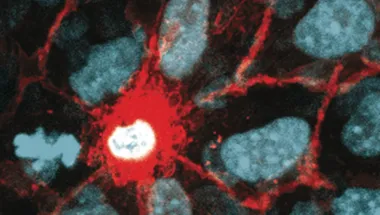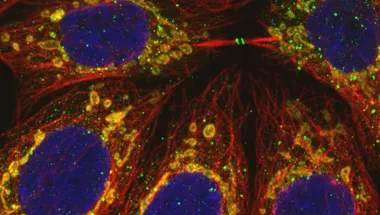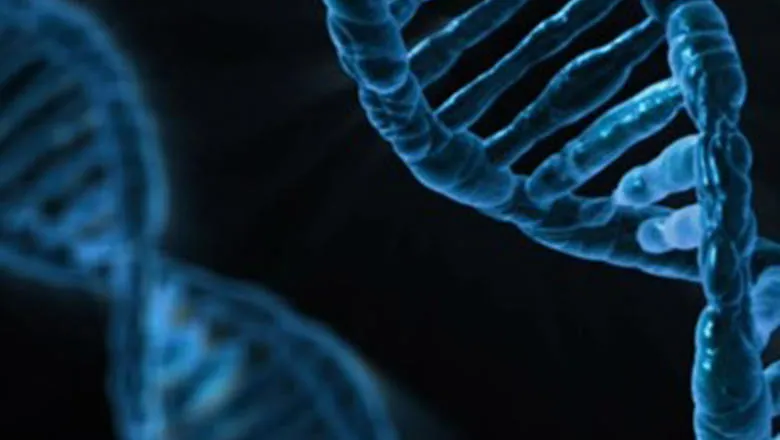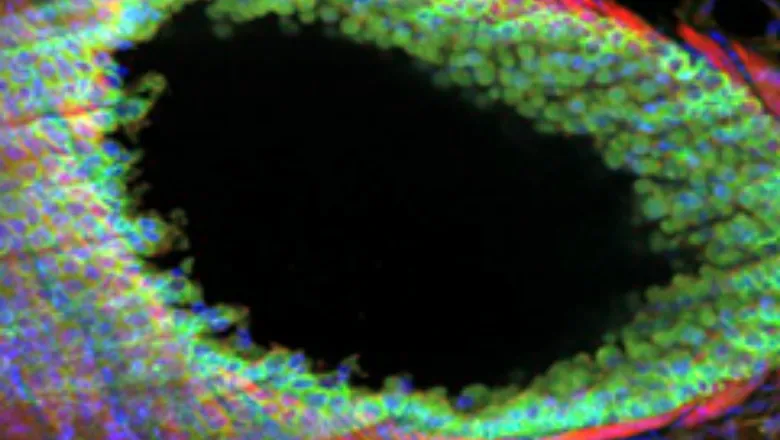
Professor Jody Rosenblatt
Professor of Cell Biology
Research interests
- Biomedical and life sciences
Biography
Jody Rosenblatt is Professor of Cell Biology in the Faculty of Life Sciences & Medicine, School of Basic & Medical Biosciences and School of Cancer & Pharmaceutical Sciences who has recently moved her lab from the Huntsman Cancer Institute at the University of Utah. During her PhD at the University of California, San Francisco with Dr Timothy Mitchison, she studied actin filament turnover and as a post-doc at the MRC-LMCB at University College London, she discovered epithelial cell extrusion, a process that eliminates dying cells without forming any gaps. Her lab studies how epithelia maintain constant cell numbers through cell death and cell division and have found that mechanical forces control each process; when cells become too crowded, they extrude some cells that later die and when cells are too sparse stretch activates cells to rapidly divide. Surprisingly, both opposing processes require the same stretch-activated calcium channel, Piezo1, depending on the force encountered. Extrusion is critical for regulating epithelial cell number, as they find that aggressive metastatic cancers and asthma can result from defective extrusion signalling. Understanding the basic cell biology of cell death is now revealing new etiologies for diseases that currently lack treatments. We believe that understanding the roots of disease will better pave the way to finding its cure, rather than merely managing its symptoms.
Research

Rosenblatt Group
The Rosenblatt Group is part of the Randall Centre for Cell & Molecular Biophysics

Rosenblatt Laboratory
We study how epithelia maintain a functional barrier and proper cell numbers, despite turning over at high rates by cell death and cell division.

Lipids and Membranes Research Interest Group
A Lipids and Membranes Research Interest Group

King’s MechanoBiology Centre (KMBC)
The King’s MechanoBiology Centre gives a common platform for researchers across different disciplines with complementary interests in mechanobiology

The Francis Crick Institute
King’s is delighted to be a founding academic partner alongside UCL and Imperial College in the Francis Crick Institute, joining the multidisciplinary research expertise from all the Partners together to deliver world-leading biomedical research.

Microbes in Health & Disease
The Microbes in Health & Diseases Research Interest Group aims to foster collaboration across departments and faculties at KCL to explore the multifaceted role microbes play in health and disease.

Translational Research & Innovation in Microbial Sciences (TRIMS) - King’s Prize Doctoral Programme
This PhD programme is designed to tackle microbial challenges through cutting-edge technological innovation, fundamental and applied science with translational impact.
News
Cells use electricity to eliminate their 'weakest' neighbours to maintain healthy protective barriers
Researchers have uncovered a surprising role for electricity in keeping our body’s protective cell layers healthy.

Jody Rosenblatt Elected to the EMBO Membership
Jody Rosenblatt, Professor of Cell Biology at King’s and Principal Group Leader at the Crick Institute, has been elected to the EMBO Membership in recognition...

Discovery of how limiting damage from an asthma attack could stop disease
Scientists at King’s have discovered a new cause for asthma that sparks hope for treatment that could prevent the life-threatening disease.

New research describes for the first time a new mechanism that cancer cells use to invade
Transparent zebrafish skin was used to explore how pre-cancerous cells behave, enhancing our understanding of how cancers progress.

King's awarded multi-disciplinary Mechanobiology doctoral training scheme by Leverhulme Trust
The Mechanics of Life Doctoral Scholarship Programme will draw on King’s research expertise in mechanobiology

Researchers awarded £3.5m to study how certain cells use and resist force
Researchers have long understood that biochemical signals affect cells, and recently it has been recognised that mechanical forces regulate a wide variety of...

Research

Rosenblatt Group
The Rosenblatt Group is part of the Randall Centre for Cell & Molecular Biophysics

Rosenblatt Laboratory
We study how epithelia maintain a functional barrier and proper cell numbers, despite turning over at high rates by cell death and cell division.

Lipids and Membranes Research Interest Group
A Lipids and Membranes Research Interest Group

King’s MechanoBiology Centre (KMBC)
The King’s MechanoBiology Centre gives a common platform for researchers across different disciplines with complementary interests in mechanobiology

The Francis Crick Institute
King’s is delighted to be a founding academic partner alongside UCL and Imperial College in the Francis Crick Institute, joining the multidisciplinary research expertise from all the Partners together to deliver world-leading biomedical research.

Microbes in Health & Disease
The Microbes in Health & Diseases Research Interest Group aims to foster collaboration across departments and faculties at KCL to explore the multifaceted role microbes play in health and disease.

Translational Research & Innovation in Microbial Sciences (TRIMS) - King’s Prize Doctoral Programme
This PhD programme is designed to tackle microbial challenges through cutting-edge technological innovation, fundamental and applied science with translational impact.
News
Cells use electricity to eliminate their 'weakest' neighbours to maintain healthy protective barriers
Researchers have uncovered a surprising role for electricity in keeping our body’s protective cell layers healthy.

Jody Rosenblatt Elected to the EMBO Membership
Jody Rosenblatt, Professor of Cell Biology at King’s and Principal Group Leader at the Crick Institute, has been elected to the EMBO Membership in recognition...

Discovery of how limiting damage from an asthma attack could stop disease
Scientists at King’s have discovered a new cause for asthma that sparks hope for treatment that could prevent the life-threatening disease.

New research describes for the first time a new mechanism that cancer cells use to invade
Transparent zebrafish skin was used to explore how pre-cancerous cells behave, enhancing our understanding of how cancers progress.

King's awarded multi-disciplinary Mechanobiology doctoral training scheme by Leverhulme Trust
The Mechanics of Life Doctoral Scholarship Programme will draw on King’s research expertise in mechanobiology

Researchers awarded £3.5m to study how certain cells use and resist force
Researchers have long understood that biochemical signals affect cells, and recently it has been recognised that mechanical forces regulate a wide variety of...

